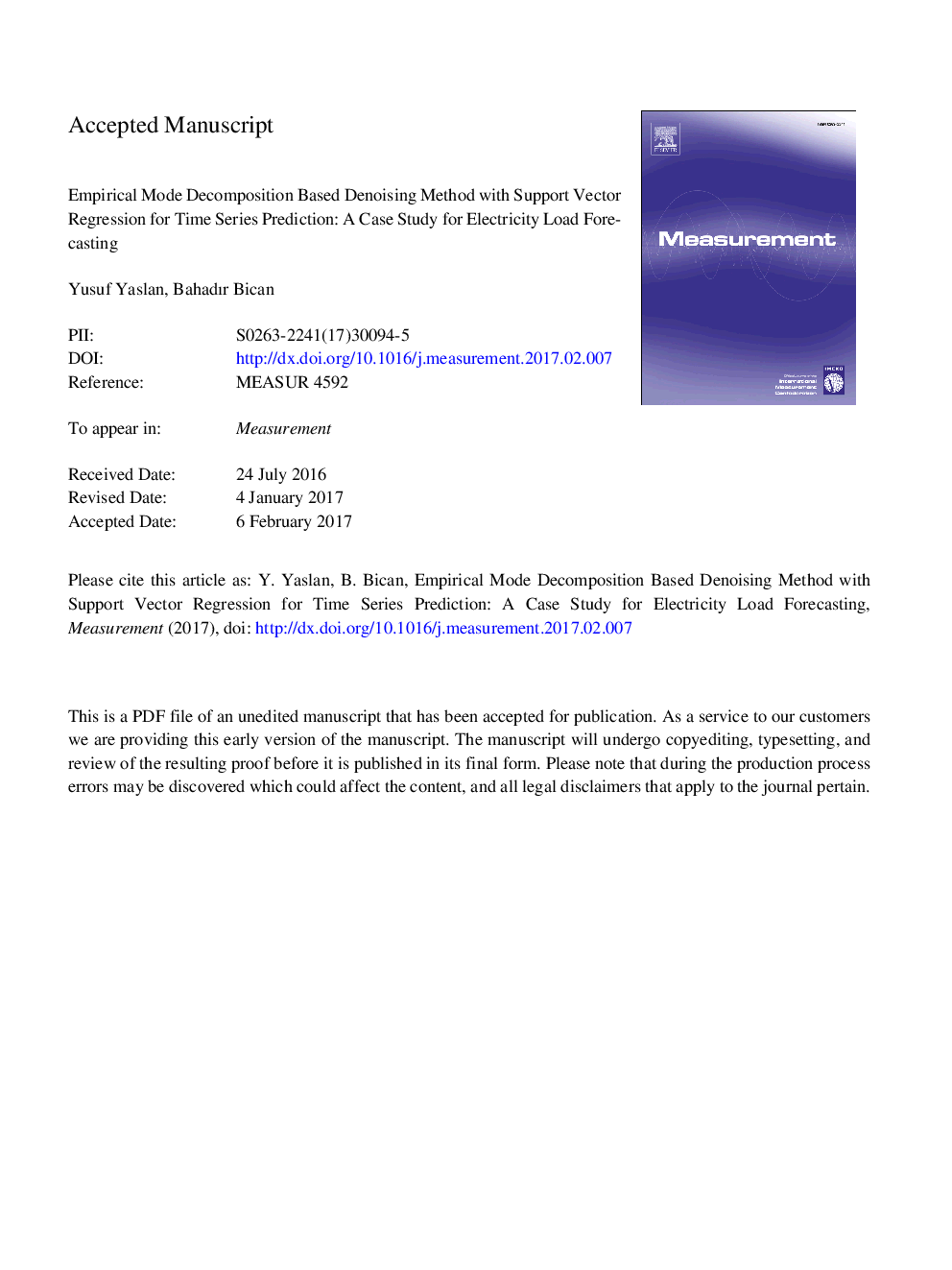ترجمه فارسی عنوان مقاله
روش انحصاری مبتنی بر تجزیه حالت تجربی با رگرسیون بردار پشتیبانی برای پیش بینی سری زمانی: مطالعه موردی برای پیش بینی میزان بار الکتریکی
عنوان انگلیسی
Empirical mode decomposition based denoising method with support vector regression for time series prediction: A case study for electricity load forecasting
| کد مقاله | سال انتشار | تعداد صفحات مقاله انگلیسی |
|---|---|---|
| 110434 | 2017 | 26 صفحه PDF |
منبع

Publisher : Elsevier - Science Direct (الزویر - ساینس دایرکت)
Journal : Measurement, Volume 103, June 2017, Pages 52-61
ترجمه کلمات کلیدی
پیش بینی بار الکتریکی، پیش بینی، رگرسیون بردار پشتیبانی، تجزیه حالت تجربی، سری زمانی،
کلمات کلیدی انگلیسی
Electric load forecasting; Prediction; Support vector regression; Empirical mode decomposition; Time series;

